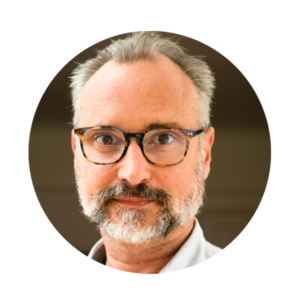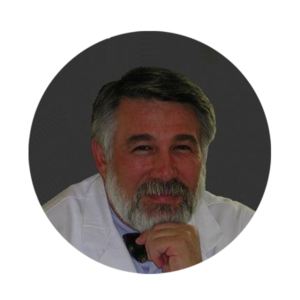Recording from Day 1 – you will need the password sent to you to access this
Recording from Day 2 – you will need the password sent to you to access this
Dr. James Fallon slides
Professor Graeme Fairchild slides
Dr. Peter Szatmari slides
The quality of future care that will be offered to children and adolescents who struggle with mental health conditions depends on the quality of teaching/training for the next generation of professionals in child and adolescent mental health.
The 2021 Jack Tizard Memorial Lecture and Conference will be a unique opportunity for everyone involved in teaching/training in child and adolescent mental health to learn from national and international experts innovative and effective ways to deliver high-quality teaching and training.
Prices and booking
Bookings have closed for this event.
Programme
Day 1 – Thursday 10 June
13:15 – Welcome from ACAMH Chair Dr. Gordana Milavić
13:20 – The future is virtual? How to teach undergraduates effectively online – Dr. James Fallon
14.20 – Q&A
14:35 – Break
14:40 – Blended teaching for undergraduate and postgraduate students in Clinical Psychology and Neuroscience – Professor Graeme Fairchild
15:40 – Q&A
15:55 – Break
16:00 – Teaching Scholarship during Child and Youth Psychiatry Training – Dr. Peter Szatmari
17:00 – Q&A
17:15 – Closing comments from ACAMH Chair Dr. Gordana Milavić
Day 2 – Friday 11 June
13:15 – Welcome from ACAMH Academic Secretary Professor Samuele Cortese
13:20 – Teaching with Film: Learning about Autism from Temple Grandin – Dr. Carlos Hoyos
14:50 – Break
14:55 – Dr. Monica Morales
15:55 – Q&A
16:10 – Break
16:15 –The Discipline of and in Child, Adolescent & Youth Psychiatry: The Right Training for the Wrong Time? or The Wrong Training for the Right Time? – Dr. Bennett Leventhal
17:15 – Q&A
17:30 – Closing comments from ACAMH Academic Secretary Professor Samuele Cortese
Speakers
Dr. Carlos Hoyos – Teaching with Film: Learning about Autism from Temple Grandin
Enthusiastic film buff doctors have been using films in medical education for years. The practice is often used to illustrate pathology, promote discussion and bring mental health closer to students experiences. Many of us find insights into mental illness from the arts much more enriching than research literature. Yet we are often hesitant to use films as part of the psychiatry curriculum, we just don’t know how to do it. In this workshop I will demonstrate how I teach Autism using the film “Temple Grandin” and then use the experience to propose a model for using film in regular educational practice that you will hopefully be able to use with any film on any topic. To make the most of the workshop you should have seen the film before the workshop, it is available on Amazon Video.
Learning objectives
By the end of the workshop you should be able to:
- Describe the evolution of our understanding of Autism as illustrated by the film “Temple Grandin”
- Understand how Narrative and Art form provide valid experiences on which to build learning on Mental Health
- Select, prepare and discuss a Film as part of Mental Health curriculum
Dr. Peter Szatmari – Teaching Scholarship during Child and Youth Psychiatry Training
Learning objectives
- To provide a brief summary of child and youth psychiatry training in Canada and contrast it with programs in other jurisdictions
- Discussing the literature on scholarship during training, especially the importance of learning evidence-based health care (EBHC) skills
- Sharing a curriculum in EBHC in mental health developed at the University of Toronto
Dr. James Fallon – The future is virtual? How to teach undergraduates effectively online
Working in undergraduate education through the pandemic has opened our eyes to the possibilities that online teaching offers. Here we will look at the advantages of delivering teaching online, cover top tips for how to make sessions engaging and consider how to overcome some of the challenges that online delivery poses. Using experiences shared from undergraduate educators across the country this session aims to turn even the most sceptical to a convert to online teaching post-pandemic.
Learning outcomes include:
- How to deliver effective teaching online
- Top tips for all group sizes
- How to adapt to working with small and large groups online
- How to best engage students online
- Including accessibility and students with specific learning needs
- How to integrate students into the virtual clinical environment
Professor Graeme Fairchild – Blended teaching for undergraduate and postgraduate students in Clinical Psychology and Neuroscience
I will talk about the blended approach to teaching that we adopted in the Department of Psychology at Bath during the Covid-19 pandemic. Drawing on my experiences and those of my colleagues, I will discuss what worked and what didn’t, new technologies that are worth considering adopting, and adaptations that we have made to our existing teaching and assessment approaches to teach effectively online or in face-to-face settings with social distancing. I will also consider which of these changes might be adopted in the long-term and the broader implications for the Higher Education sector.
Dr. Bennet Leventhal – The Discipline of and in Child, Adolescent & Youth Psychiatry: The Right Training for the Wrong Time? or The Wrong Training for the Right Time?
Learning Objectives:
- Examine current approaches to child, adolescent, and youth psychiatry training.
- Consider the current needs for practice in child, adolescent, and youth psychiatry.
- Reviewing what is missing in in child, adolescent, and youth psychiatry training.
- Consider what can be “elective” or deleted from training.
- Examine the role of contemporary environment on training needs.
Other confirmed speaker Dr. Monica Morales

Dr. Carlos Hoyos trained as a doctor in Spain, as a Psychiatrist in UCH and as a Child Psychiatrist at the Tavistock. He has been a Consultant Child and Adolescent Psychiatrist for 20 years and is currently working in an Adolescent Unit in Winchester. He has been a medical teacher even longer and is currently the Coordinator for the Undergraduate Psychiatry Module in Southampton medical school and a Teacher of Medical Education in the University of Winchester.
He has been running a Student Selected Unit called “Mental illness and the movies” for 10 years where he gets paid to watch films with students teach and sell psychiatry. He would like to share what he has learned on how to do this.

Dr. Szatmari is Chief of the Child and Youth Mental Health Collaborative between Centre for Addiction and Mental Health, the Hospital for Sick Children and the University of Toronto. He holds the Patsy and Jamie Anderson Chair of Child and Youth Mental Health and has worked in the field of child and youth psychiatry for over forty years. He started his career working on the Ontario Child Health Study, the first epidemiological study of mental disorders in children and adolescents in North America. He has also worked in the areas of ADHD, disruptive behaviour disorders, depression and anxiety and impairment due to mental disorders. He is well known for his work in autism spectrum disorders and has made contributions to that field in diagnosis and classification, in genetics and in outcome studies. More recently, as Director of the Cundill Centre for Child and Youth Depression, he has focussed on improving mental health systems for youth and on the treatment of depression. He has over 350 publications in peer-reviewed journals and has had continuous CIHR funding since 1991.
He has been editor of several important journals in the field of child and adolescent psychiatry and has consulted to government agencies in Canada, the USA and the UK. He is the author of the book “A Mind Apart; Understanding Autism and Asperger Syndrome” and of ‘Start Here; a Guide for Parents’ with Dr. Pier Bryden.

Dr. James Fallon is a Clinical Senior Lecturer in Medical Education at Brighton and Sussex Medical School and the Deputy Director of Medical Education at Sussex Partnership NHS Foundation Trust. Having overseen the transition to online learning for undergraduate students over the past year James is an enthusiastic supporter of online teaching and believer that this is here to stay. With both undergraduate and postgraduate roles James has developed innovative strategies to increase undergraduate faculty size without increasing spending and improve training grade doctor’s teaching skills. James’ current research focuses on the integration of virtual Balint groups into psychiatric placements. Clinically James has worked across a range of specialities including Early Intervention, Neurodevelopmental Addictions Services and is currently an Honorary Consultant in the Assertive Outreach Team in Brighton.

Professor Graeme Fairchild
Graeme Fairchild is Reader (Associate Professor) in Developmental Psychopathology at the University of Bath in the UK. He moved to Bath in 2016, after 6 years in the Developmental Brain-Behaviour Lab at the University of Southampton where he was an Associate Professor. Before that, he worked as a post-doc in the Department of Psychiatry at the University of Cambridge and the MRC Cognition and Brain Sciences Unit. He teaches across many degree programmes at Bath – from introductory lectures to undergraduate students to advanced seminars with PhD and MSc students – and convenes courses on Developmental Psychopathology, Advanced Clinical Psychology and Cognitive Neuroscience. He is a PI on the Neurobiology and Treatment of Female Adolescent Conduct Disorder (FemNAT-CD) study, which is a major EU-funded project investigating sex differences in antisocial behaviour. He is also part of the English and Romanian Adoptees’ study team which is researching the long-term impact of early institutional deprivation on brain structure and function in adulthood. Lastly, he is an Editor of the journal European Child & Adolescent Psychiatry.
Dr. Monica Morales
I have been working with families for nearly 20 years, focusing on the mental health of children and their families., I am currently working as a Family Therapy/High Specialist in a Children and Adolescent Mental Health Service for 4 days a week. The work involves working with children and their families that are presenting a mental health issue such as depression, anxiety, ADHD, Anorexia Nervosa and Asperger Spectrum or challenging behaviour. As part of my job, I also offer group systemic supervision to colleagues and individual family therapy supervision to students and colleagues. As part of this post I also teach the Year 1 and 2 of Family Therapy to colleagues from education, social services and the NHS.
I also work as a trainer one day a week in Family Therapy in the Tavistock Clinic in London. I train professionals that are interested in the application of systemic ideas to their own profession, such as social workers, mental health nurses, counsellors, etc.
I also work privately with adoption agencies, providing support to families that may be experiencing difficulties in their relationships. This involves direct work with families, liaising with different agencies and providing written assessments if required. I also work privately with couples that are experiencing difficulties in their relationships

Dr. Bennett Leventhal is a psychiatrist who specializes in autism spectrum disorder, attention-deficit/hyperactivity disorder (ADHD) and disruptive behavior disorders. As an advocate for children’s mental health, he is devoted to enhancing the lives of children and families not only through patient care but also through working to influence policy and practice.
Leventhal has directed a number of initiatives to advance cutting-edge translational research – translating study findings into treatments and prevention – on psychiatric disorders in children and adolescents. His research focuses on disruptions in brain development that interfere with social functioning, including the molecular genetics of autism and the prenatal origins of disruptive behavior disorders. His endeavors include developing research programs in integrated pediatric mental health services, pediatric psychopharmacology, bullying and epidemiology.
Leventhal earned his medical degree from Louisiana State University School of Medicine and completed a residency at Duke University Medical Center. He is a professor emeritus at the University of Chicago, a distinguished fellow of the American Academy of Child and Adolescent Psychiatry as well as the American Psychiatric Association, a specialty fellow of the American Academy of Pediatrics and a fellow of the American Orthopsychiatric Association. He is a member of many professional organizations, including the American Association for the Advancement of Science, American College of Psychiatrists, South Florida Council for Child and Adolescent Psychiatry, Florida Psychiatric Society, Society for Research in Child Development and Society of Professors of Child and Adolescent Psychiatry.


